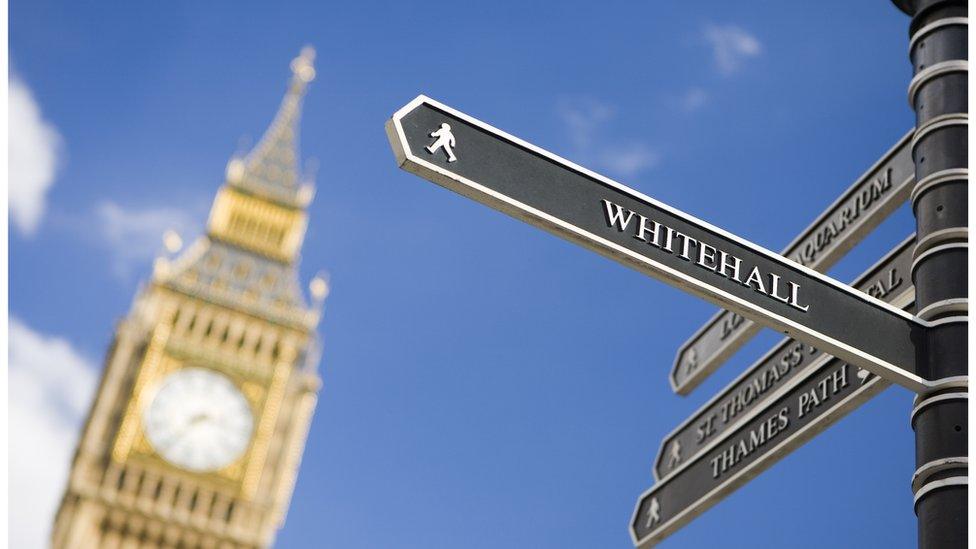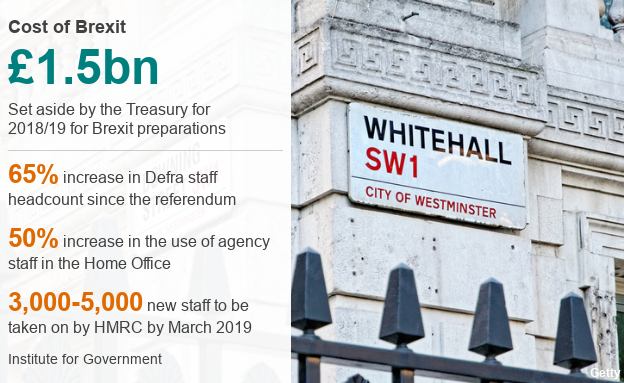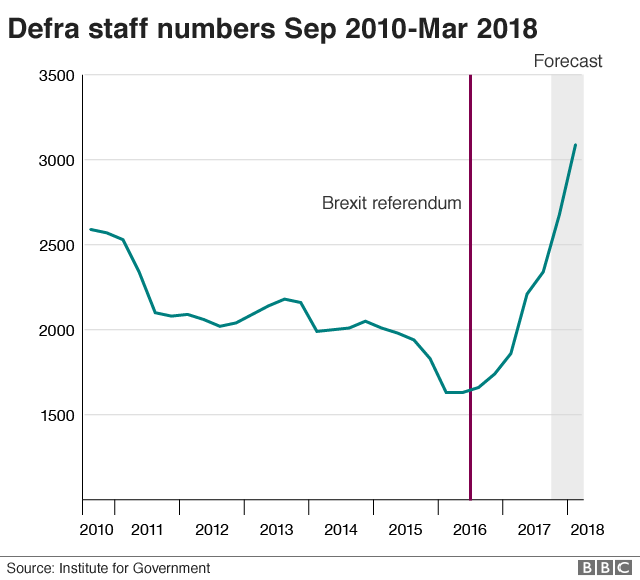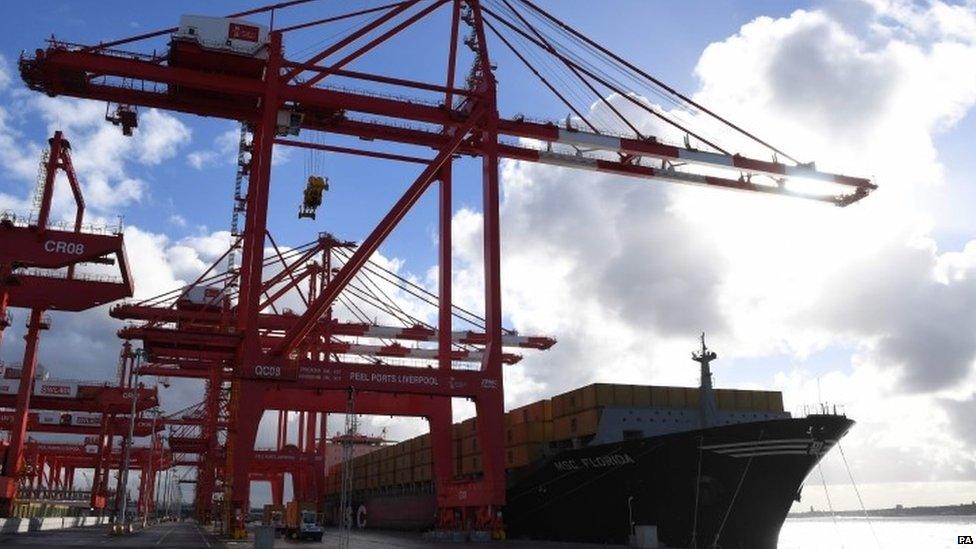Brexit plans lead to reverse in civil servant cuts in key departments
- Published

Thousands of extra civil servants are being employed to cope with the challenges posed by Brexit.
New research carried out by the independent Institute for Government (IFG), external think tank suggests that in some key departments, six years of austerity cuts have been reversed in less than two years since the Brexit referendum took place. The cost of getting the civil service ready for Brexit runs into billions of pounds.
Brexit was always going to mean a massive workload for the civil service - not only in negotiating the UK's departure, but also in setting up new systems that will run independently of the EU in the future.
Now we're beginning to see what that means in practice.
Two new departments have been created since the referendum - the Department for Exiting the EU (DExEU) and the Department for International Trade (DIT). Between them they have about 1,500 staff devoted exclusively to Brexit.
Some of them have transferred from elsewhere in the civil service - but that means other jobs have to be filled or other work isn't being done.
Staffing levels return to pre-2010 levels in key areas

At the time of the EU referendum, after years of austerity, the civil service was at its smallest since World War Two - and 20% smaller than it was when the coalition government took office in 2010.
According to the Office for National Statistics, external, in 2010 there were 527,500 civil servants. By 2016 that number had fallen to 418,300.
But in key departments dealing with Brexit, those staff reductions have largely been reversed.
The numbers are most striking in the Department of Environment, Food and Rural Affairs (Defra) - the IFG says its headcount has increased by 65% since the referendum.
By the end of this month Defra is due to have taken on an extra 1,200 people working directly on Brexit, as it seeks to replace the EU's Common Agriculture and Fisheries Policies.

Now comparisons are not exact, but let's look at the European Commission in Brussels. It employs 1,657 staff in three departments dealing with agriculture, fisheries and the environment - but that's for all 28 countries including the UK.
Elsewhere in the UK civil service, the Home Office is planning to have hired an extra 1,500 Brexit staff by September, and Her Majesty's Revenue and Customs (HMRC) between 3,000 and 5,000 extra staff by this time next year.
Both these departments, and Defra, are seeing staffing levels return to pre-2010 levels.
There's also been a big increase in agency staff and consultants working for the civil service - the Home Office for example is now employing 50% more agency staff than it was in the year before the referendum took place.
How much is it all costing?
As for the cost the IFG says its conservative estimate is that getting the civil service ready for Brexit will have cost as much as £2bn by the time the UK is due to leave the EU in March next year. The Treasury says that has already been budgeted for.
But it's worth remembering the extra civil service spending would be on top of the divorce bill with the EU which the government says will be up to £39bn, but could be even higher.
When asked by Reality Check about the numbers, the Treasury said it wants an orderly exit from the EU.
"The government is committed to ensuring that the right skills and resources are available to deliver a successful Brexit that works for all parts of the country.
"We continue to review the capability of all departments and recruit the brightest and the best talent from the public and private sectors to unlock the benefits and opportunities of leaving the EU."



- Published27 February 2018

- Published24 January 2017
